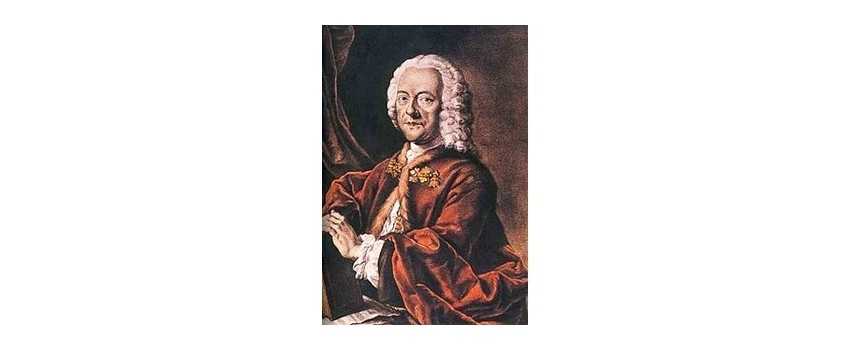Alte Meisterweisen fur junge Cellisten (Schott)
Alte Meisterweisen fur junge Cellisten (Schott)
Georg Philipp Telemann, a prominent German composer of the late Baroque period, left an indelible mark on the world of music. Born on March 14, 1681, he possessed exceptional musical talents from an early age. Despite facing initial resistance from his family, Telemann's passion for music eventually led him to become one of the most celebrated composers of his time.
Early Life and Musical Education
Georg Philipp Telemann was born into a Protestant minister's family and received a comprehensive education. However, music was not initially encouraged in his household. Despite this, Telemann's innate musical abilities could not be suppressed. He displayed remarkable talent and aptitude for various instruments, such as the violin, recorder, oboe, viola da gamba, chalumeau, and keyboard.
Telemann's passion for music prompted him to seek training and develop his skills further. Although he was never formally educated in music, he acquired expertise through self-study and practical experience. Telemann's determination and dedication laid the foundation for his future success as a composer and performer.
Musical Journey in Frankfurt and Hamburg
Telemann's musical journey took him to Frankfurt am Main and Hamburg, where he honed his craft and established himself as a respected musician. In Frankfurt, he served as the musical director of two churches, overseeing the region's official music. Additionally, he played a pivotal role in reorganizing the college of music and introducing public concerts, which gained him recognition both in Germany and abroad.
Telemann's contributions to the music scene in Frankfurt were instrumental in shaping his career. His talent and dedication were apparent, and his compositions began to gain attention and acclaim. Through his published works, Telemann solidified his reputation as a gifted composer and further expanded his reach as a musician.
Rise to Prominence in Hamburg
Telemann's journey eventually led him to Hamburg, where he would leave an indelible mark on the city's musical landscape. In Hamburg, he held the prestigious position of musical director at the Hamburg Opera, one of the most esteemed roles in the musical world at the time. This appointment brought him significant recognition and allowed him to showcase his exceptional talent and creativity.
In addition to his role at the Hamburg Opera, Telemann also worked as a singer at the renowned charitable college, the Jobanneum. This multifaceted involvement in Hamburg's music scene further solidified his position as a prominent figure in the city's musical community.
Musical Style and Contributions
Georg Philipp Telemann's musical style was characterized by its versatility and innovation. He was a prolific composer, leaving behind an impressive body of work comprising various genres, including sacred music, operas, orchestral suites, concertos, and chamber music. His compositions showcased a rich melodic language, intricate harmonies, and imaginative use of instrumentation.
Telemann's contributions to church music were particularly noteworthy. His compositions for religious ceremonies and services were highly regarded, earning him praise for his ability to evoke deep emotions and spiritual contemplation through music. His works demonstrated a deep understanding of the religious text and a skillful integration of music and theology.
Legacy and Influence
Georg Philipp Telemann's impact on the world of music cannot be overstated. His compositions continue to be performed and studied to this day, reflecting his enduring influence. Telemann's innovative approach to composition, his mastery of multiple instruments, and his ability to seamlessly blend different musical styles left an indelible mark on the Baroque era and beyond.
Furthermore, Telemann's dedication to music education and his extensive body of instructional works cemented his position as a leading figure in music pedagogy. His compositions for beginners and intermediate musicians provided valuable resources for aspiring musicians and contributed to the development of music education as a whole.
Conclusion
Georg Philipp Telemann's life and musical journey exemplify the power of perseverance and passion in the pursuit of one's dreams. Despite initial obstacles, he overcame adversity and went on to become one of the most celebrated composers of the Baroque period. Telemann's legacy continues to inspire musicians and audiences alike, serving as a testament to the transformative power of music and the enduring impact of a truly talented composer.

Alte Meisterweisen fur junge Cellisten (Schott)
Telemann, Georg. Concerto in G major for viola and orchestra. Edition for viola or cello, with piano accompaniment. Editio Musica Budapest, Z. 12 827. Cello transcription by Pejtsik, Arpad. Piano reduction by Nagy, Oliver.
Cello & Piano I Compiled by Pejtsik (Editio Musica Budpest)
Georg Philipp Telemann Fantasia for Cello (Universal Edition)